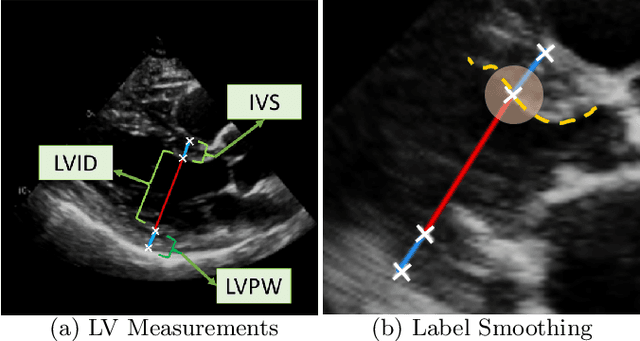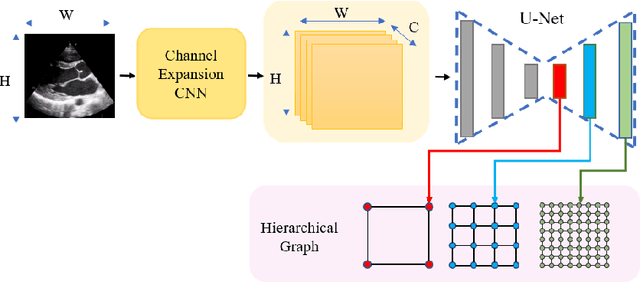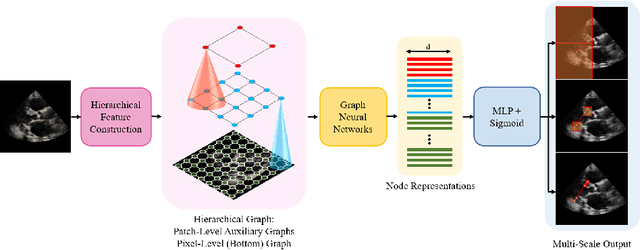EchoGLAD: Hierarchical Graph Neural Networks for Left Ventricle Landmark Detection on Echocardiograms
Paper and Code
Jul 23, 2023



The functional assessment of the left ventricle chamber of the heart requires detecting four landmark locations and measuring the internal dimension of the left ventricle and the approximate mass of the surrounding muscle. The key challenge of automating this task with machine learning is the sparsity of clinical labels, i.e., only a few landmark pixels in a high-dimensional image are annotated, leading many prior works to heavily rely on isotropic label smoothing. However, such a label smoothing strategy ignores the anatomical information of the image and induces some bias. To address this challenge, we introduce an echocardiogram-based, hierarchical graph neural network (GNN) for left ventricle landmark detection (EchoGLAD). Our main contributions are: 1) a hierarchical graph representation learning framework for multi-resolution landmark detection via GNNs; 2) induced hierarchical supervision at different levels of granularity using a multi-level loss. We evaluate our model on a public and a private dataset under the in-distribution (ID) and out-of-distribution (OOD) settings. For the ID setting, we achieve the state-of-the-art mean absolute errors (MAEs) of 1.46 mm and 1.86 mm on the two datasets. Our model also shows better OOD generalization than prior works with a testing MAE of 4.3 mm.
 Add to Chrome
Add to Chrome Add to Firefox
Add to Firefox Add to Edge
Add to Edge